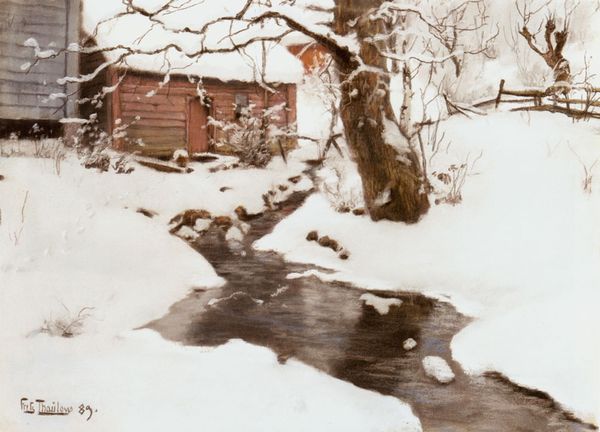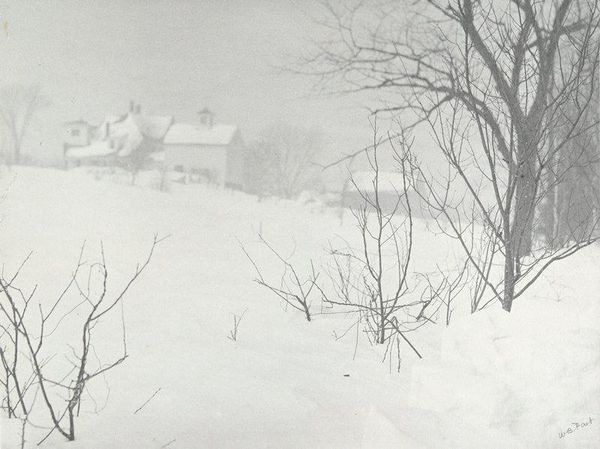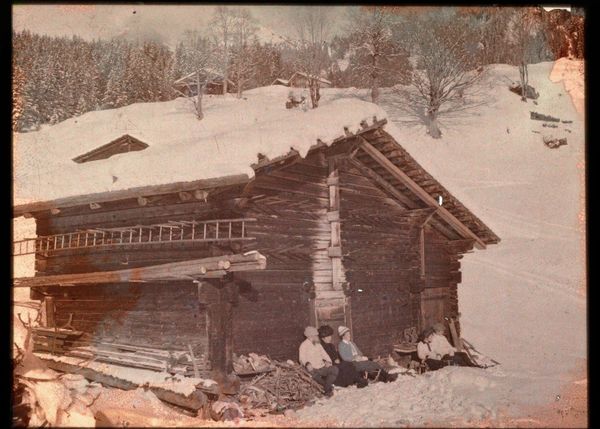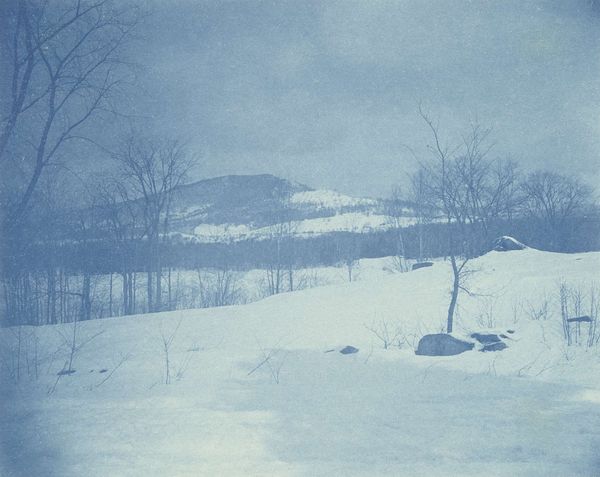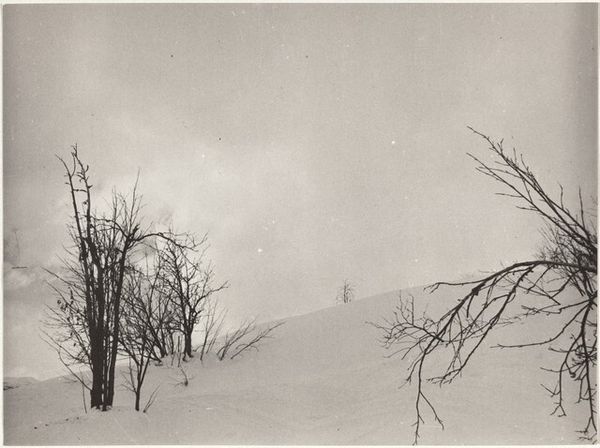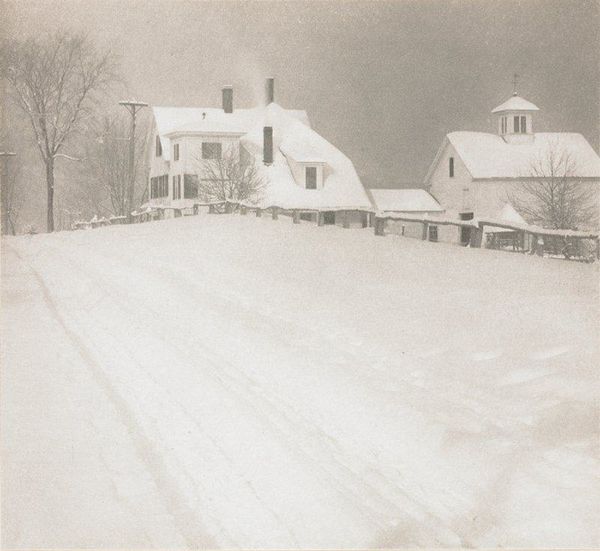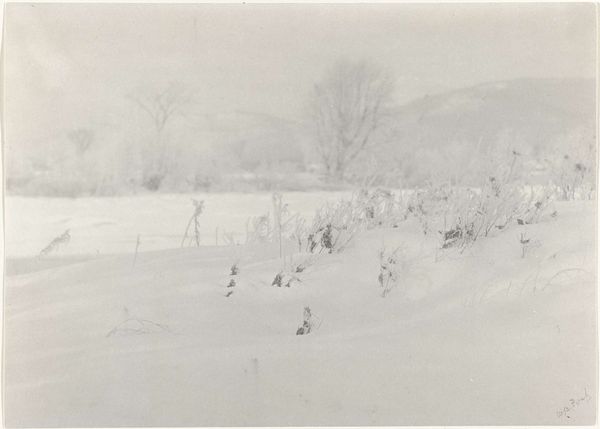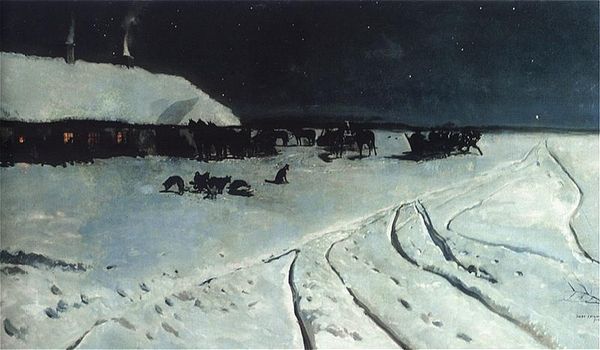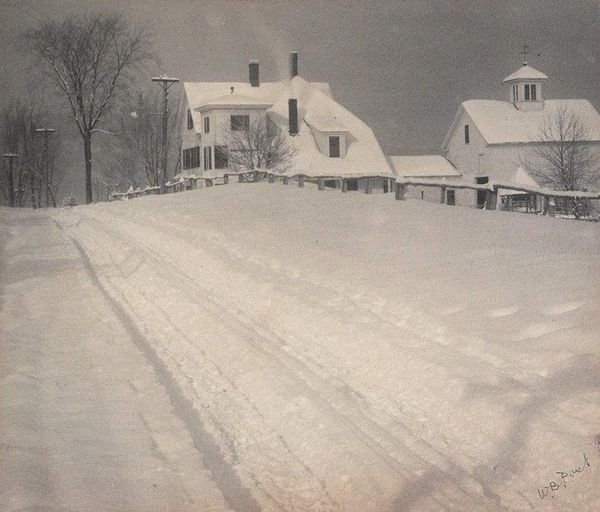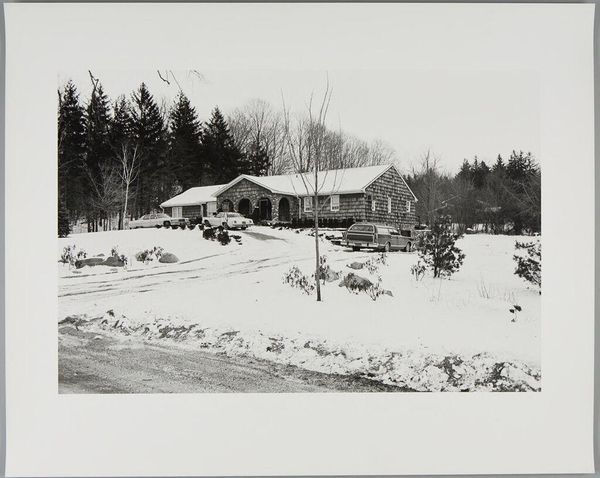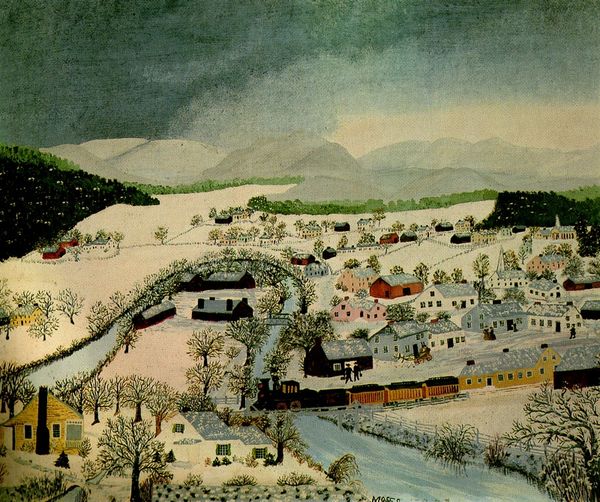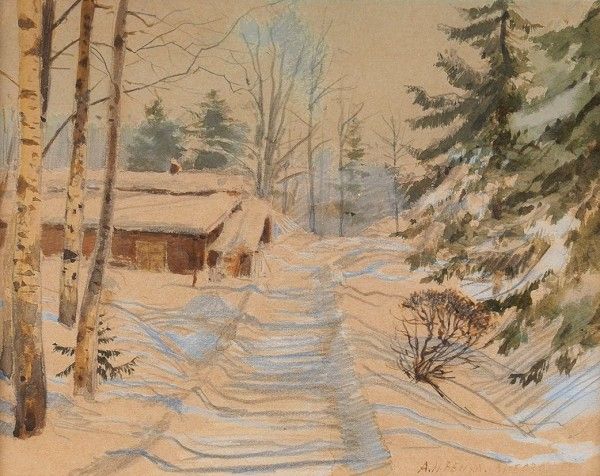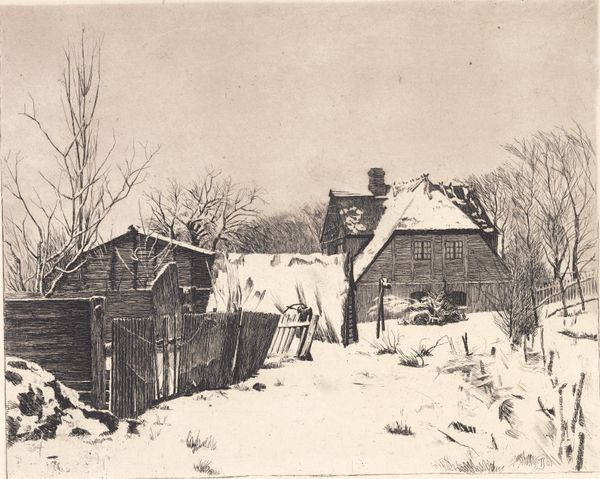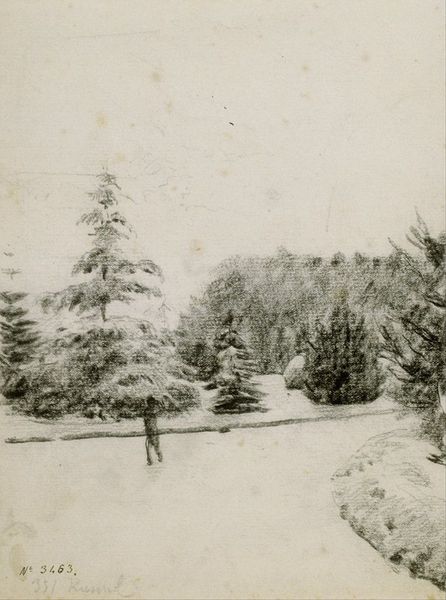
Copyright: Public domain
Curator: Look at the somber mood conveyed in this artwork; it feels suspended in time, perhaps just before sunset. Editor: I agree; the winter light is fading. We’re looking at "Winter. Imochentsy," an oil painting executed in 1880 by Vasily Polenov. He offers us a stark but strangely comforting glimpse into rural Russia. It feels melancholic but serene all the same. Curator: Precisely. The dominant shades of white and grey certainly evoke a sense of cold stillness, and yet the tiny figures and buildings give off the impression of simple beauty, and human activity persevering even in this desaturated place. Consider the cultural memory inherent in depictions of rural life; for Russians, this taps into a potent wellspring. Editor: These snowy villages often represent something foundational about Russian identity and culture; its resilience is bound to the land. Polenov was part of a generation interested in depicting the everyday realities of rural life, challenging academic norms. I see how these artists believed that art had a crucial public role to play. Curator: Yes, and beyond Realism, one can read subtle signs and implications, as if Polenov aimed to render visible not only winter, but its essence, perhaps what winter meant for him or to this place in particular. Winter, across cultures, has a rich history of being an ominous metaphor of life and mortality as much as being a symbol of rejuvenation or hope. What we witness is the ability to load the landscape with these emotional valencies. Editor: Definitely. His use of color plays into that ambiguity: this is more than just a picture; the muted palette speaks to something somber, maybe to hardship, but in its way the work still offers that feeling of pastoral harmony. We can see how artists grappled with these new notions of realism within painting itself. This challenges how we think about academic styles and what the goal of painting should even be! Curator: Absolutely; it embodies both hope and resignation to forces bigger than any single individual. Editor: Yes. And I love how, with the knowledge of all this complex social and historical context, a painting like Polenov's landscape rewards slow and careful examination. Curator: It speaks to how loaded, how symbolically pregnant a genre landscape may be with subtle cues about being human.
Comments
No comments
Be the first to comment and join the conversation on the ultimate creative platform.
